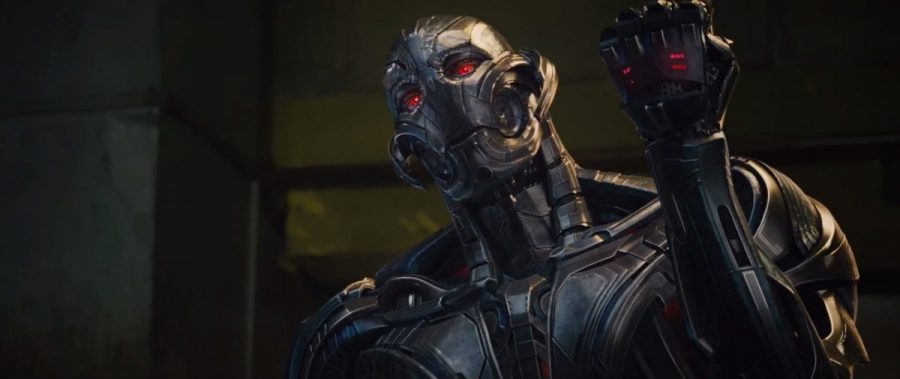In many ways, Avengers: Age of Ultron is the ultimate ‘comic book movie’. The second major crossover event between the Marvel roster’s biggest characters, it pits Iron Man/Tony Stark (Robert Downey Jr.), Captain America (Chris Evans), Thor (Chris Hemsworth), The Hulk/Bruce Banner (Mark Ruffalo), Black Widow (Scarlett Johansson) and Hawkeye (Jeremy Renner) against a rogue Artificial Intelligence (Ultron, played by James Spader) originally of Stark’s creation, but fast hell-bent on destruction. Like most of Marvel Studios’ previous offerings, it is entertaining, action-packed and witty. However, this likeness also means it is… well, a bit familiar.
You see, Tony Stark is still living in fear of the first film’s alien threat (a PTSD briefly explored in Iron Man 3), leading him to explore the possibility of controversial solutions behind his teammates’ backs (like SHIELD were caught doing in Avengers Assemble). As Captain America puts it, Stark is “trying to end a war before it starts”, an approach that will always lead to innocents suffering (just like he said during last year’s The Winter Soldier). All of these beats are justifiable – Tony is plagued by visions of failing his friends and is desperate to avoid it, meanwhile Cap is just being consistent – but that doesn’t stop them feeling recycled. Similarly, moments spent exploring the mysteries of Loki’s sceptre feel simultaneously like a step backwards to the previous film and, due to some hastily handled revelations about ‘Infinity Stones’, a distracting and unnecessary link to the next, which isn’t due out for three years. Consequently, the supposed ‘Age of Ultron’ rarely feels as if it’s fully committed to the moment.
It’s a shame, not just because it disrupts the flow, but also because when the film does take time to focus on its own developments it is far more satisfying. There’s a lot of potential here. Bruce Banner’s constant struggle to reconcile himself with the actions of his destructive Mr. Hyde is as poignant as ever, and the connection this creates with Black Widow’s remorseful former assassin provides a smart new dynamic. The previously underused Hawkeye also gets opportunity to shine, with highlights including self-referential acknowledgements of how squandered the character was being brainwashed for much of the first film (“I’ve done the mind control thing. I didn’t like it…”) and the suspension of disbelief (“We’re fighting an army of robots. On a floating city. And I have a bow and arrow. None of this makes any sense, yet here we are.”)
More surprising still is the thematic heft present in places. From the aforementioned layers of guilt and fear, to the transitory nature of evolution as man is forced to realise his own impermanence in the face of a seemingly invincible foe. Most of this hinges on Spader’s sinister yet amusingly cynical Ultron, whose tone regarding humanity contains as much derision as it does disdain, but a beefed-up role for series regular Paul Bettany provides an interesting, if slightly underexplored, counterbalance.
But it all gets a bit lost in the muddle. The film’s multiple fight scenes – despite some novel uses of Thor’s hammer and Captain America’s shield – are all slightly rote, with director Joss Whedon utilizing a few too many sweeping long takes in an attempt to highlight teamwork. There’s nothing here to rival the helicarrier sequence from Avengers Assemble, which played more successfully by giving each cast member a distinct thing to do, and yet another Marvel finale revolving around a faceless army and a free-falling object of doom does little to help.
And all this without even mentioning appearances from several other Marvel players, plus the introduction of two new ones: super-powered twins Pietro and Wanda, played by Aaron Taylor-Johnson and Elizabeth Olsen. Both have their moments (though the speedy Pietro’s powers were demonstrated far more interestingly in the recent X-Men: Days of Future Past), but neither feels like a ‘new favourite character’, or even a particularly important one – they’re just another pair of faces in an ever-growing crowd. And therein lies the problem. Age of Ultron may be the ultimate comic book movie, but when Marvel’s output lacks distinction it begins to feel less like they’re making films and more like they’re creating an ongoing series, each instalment closer to resembling a filler issue than a satisfying arc of its own.
